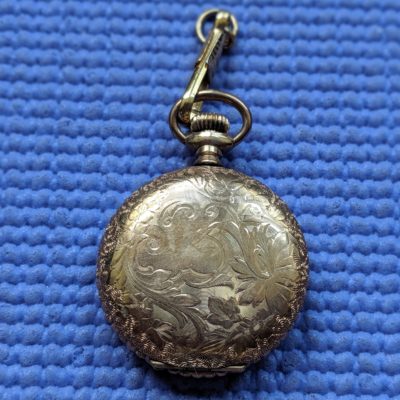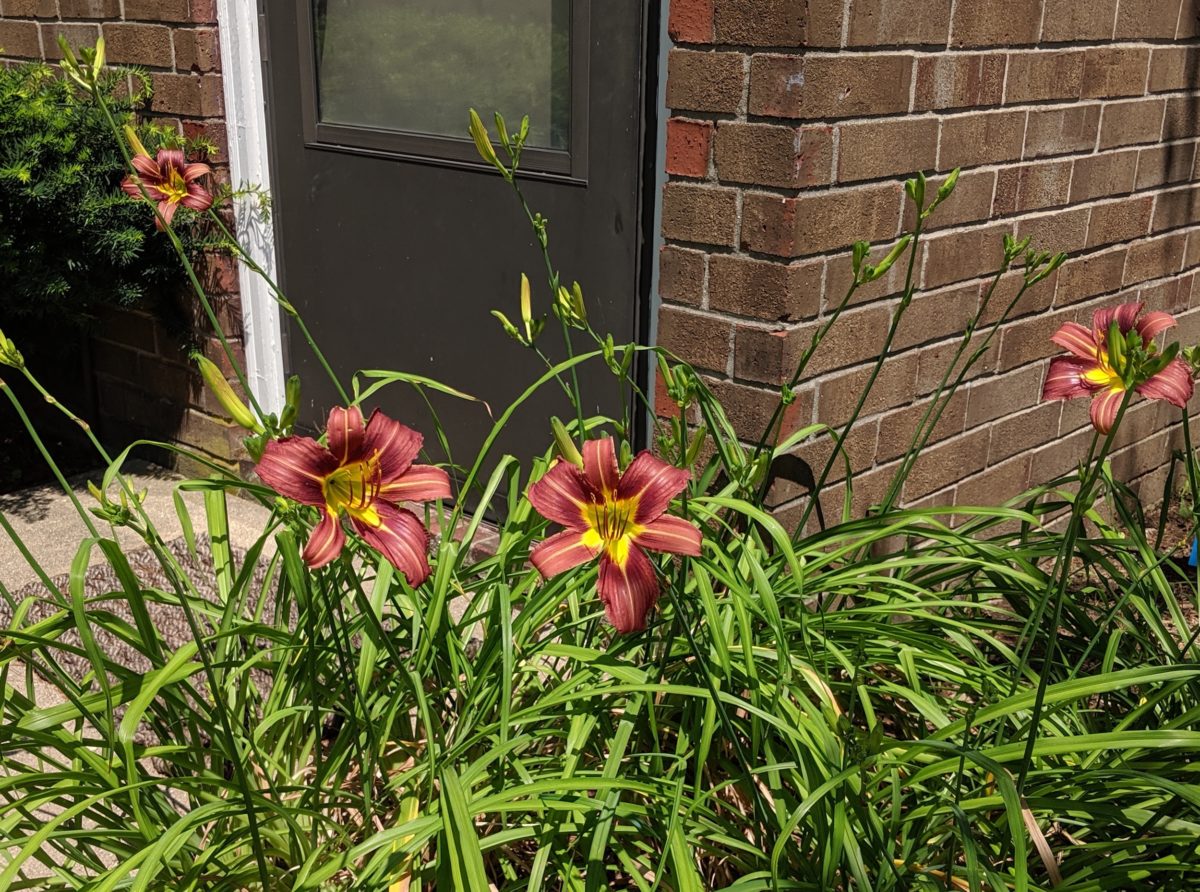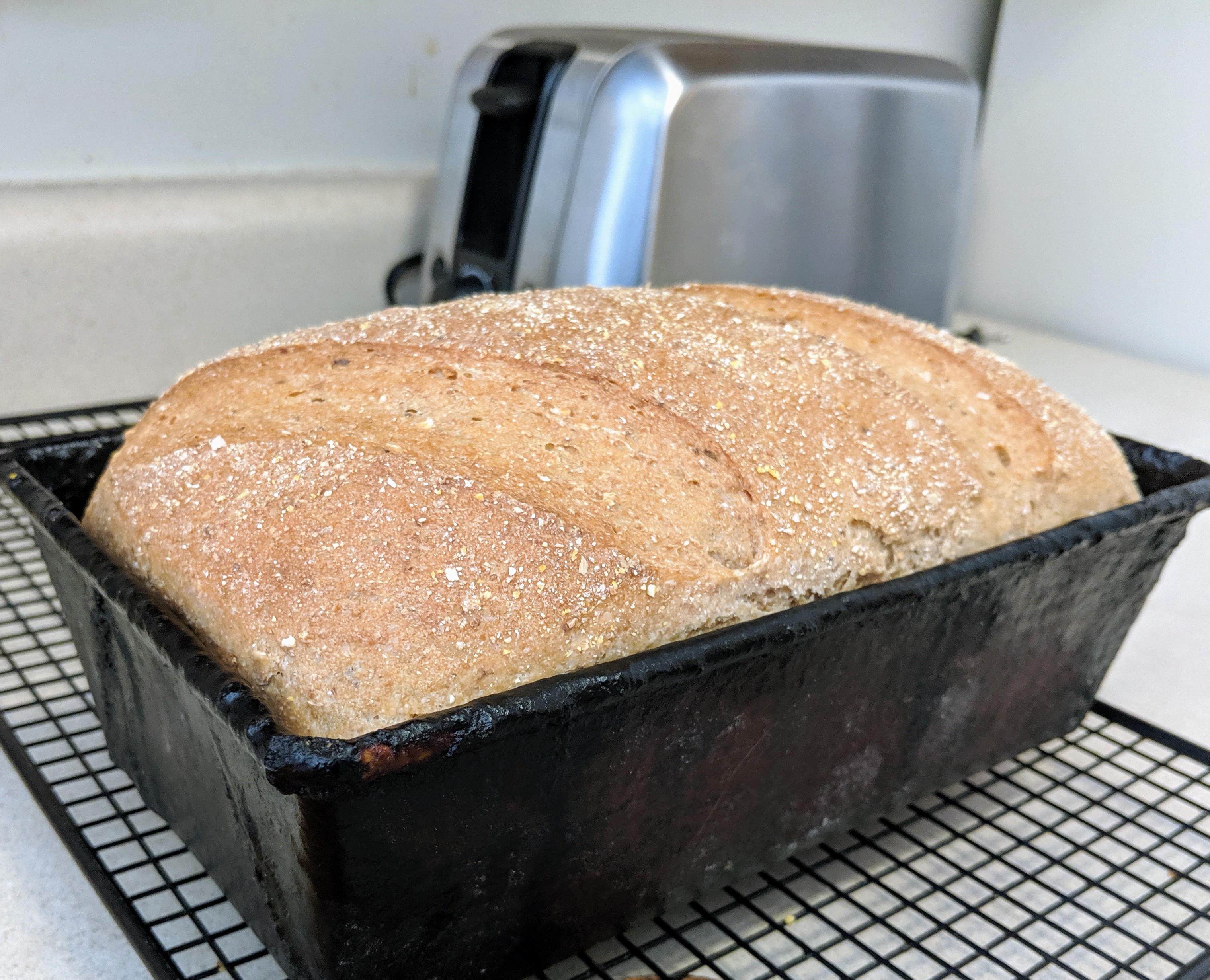
A couple of things bad enough to justify rebelling against England: “obstructing the Laws for Naturalization of Foreigners; refusing to pass others to encourage their migrations hither.”


A couple of things bad enough to justify rebelling against England: “obstructing the Laws for Naturalization of Foreigners; refusing to pass others to encourage their migrations hither.”

To be completely honest I mainly want this because without it the watch pocket in 5-pocket jeans is worthless. But it also occurs to me it might be appropriate as an alternative to a burner phone.
I don’t have the device fully characterized yet, and in fact there are multiple versions that might be differently useful in different circumstances, but here’s a sketch of what I’m thinking about.
First of all, the device has to fit comfortably in the watch pocket of a pair of 5-pocket jeans. That’s its whole raison d’être.
Almost certainly it needs to have:
This is enough to enable all sorts of use cases: Geo-tagged images, navigation, listening to podcasts, tracking workouts, etc.
If I could get just that—and if it were reasonably cheap, and designed with good security—I’d buy one in a heartbeat, simply to have a workout tracking device that fit in the media pocket of my workout shorts. (My phones get bigger faster than I need to buy new running shorts.)
At this point, we need to make a big binary decision: Does the device have a phone?
Without a phone, it’s just a teeny-tiny tablet. As I say, I’d buy one, but without a phone it’s pretty limited—no connectivity unless you’re on somebody’s WiFi.
For most of the use cases I have in mind, this would work great. I could connect my headset & heart-rate monitor, kick off a podcast, start up my work-out tracking app, and go for a run. Along the way I could pause to take photos to document my workout. And the end I could share photos and workout details to social media. (Everybody I know cares deeply about my workouts.)
Some very minor software tweaks would let you use it your pocket watch phone as if you were connected. For example, you could still write texts and social media posts, they’d just be queued up until you went on WiFi someplace at which point they’d all be delivered.
The biggest issue with a pocket-watch non-phone phone would be the inability to make emergency calls. Less of a big deal but important to a lot of people is just generally being connected—making and taking calls, sending and receiving texts, keeping up on and posting to social media, etc.
The downside of adding a phone is that it loses the potential to be a purely off-the-grid device.
It might be possible to compromise: You could have a phone that’s turned off (with a burner SIM). Then you’re covered: In case of an emergency turn the phone on.
Proper burner phone security would require that you dispose of the phone as well as the SIM once you’ve powered it up. That need could probably be avoided if the phone generated a new IMEI on each power-up the way some devices are now generating new MAC addresses on power-up for the same reason. (There might be other numbers that would need to be regenerated. There’d also probably be other software changes necessary, such as obfuscating the list of installed apps, to keep the phones from being self-fingerprinting in all sorts of ways.)
If you can make the phone cheap enough, which having a very small screen would help a lot with, maybe none of that matters. Buy the phones in three-packs for a few dollars, and then give them to homeless shelters as soon as you’re done with one.
I assume that @jackieLbrewer has already noticed that the #lilycount is 13. (Ooh! We also had 13 lilies exactly one year ago!)

I wouldn’t want to speculate on what’s my worst character flaw, but I’m willing to go out on a limb and say near the top of the list is that I think it’s funny to pronounce epistemological as if it were spelled epi-systemological.

I have lost actual physical paper books many times over the years—loaned and never returned, accidentally left somewhere, dropped in the tub, left on a windowsill and rained on, literally worn out from re-reading. Many were lost when my house fell down. One was confiscated by a teacher. I’ve not yet lost an ebook.
 Jackie got a coupon for a free entree from @Houlihans for her birthday. We’re both drinking the @BlindPigBrewing UofIPA. @jackieLbrewer
Jackie got a coupon for a free entree from @Houlihans for her birthday. We’re both drinking the @BlindPigBrewing UofIPA. @jackieLbrewer

Since drinking some scotch fermented with a wild yeast found on some barley, I’ve been meaning to feed Bubbles (our sourdough starter) some barley flour, in the hopes of finding her some new playmates. Today I did.
I occasionally choose to do hard things.
In the book Own the Day, Own Your Life Aubry Marcus suggests making your brain chemistry work for you by creating small successes, especially early in the day: Decide that you’re going to do something, and then do it. Even a small thing—deciding to mediate for 5 minutes and then doing so—gives you a little dopamine hit. That makes you feel better immediately, and possibly for the rest of the day. More to the point, repeatedly achieving small successes like this gradually boosts your capability: You can decide to do harder things (get in your workout, go for a run, write 5 pages of your novel) and then do them.
In an episode of her Move Your DNA podcast, Katy Bowman juxtaposes the feeling of satisfaction that you get when you set yourself to do something that you know will be hard and then carry through all the way to completion, with the feeling of being comfortable, saying:
What we’re trying to create through comfort is like the synthetic version of what you get when you pass through those hoops.
Katy Bowman
I think there’s a lot of truth to that. It’s very satisfying to decide to do something that’s hard and then do that thing. It feels good. I’m not sure it feels good in the same way that sitting in a comfy chair feels good, but I think there is a connection. Sitting down feels really good after a long run when your legs are tired; sitting in a really comfy chair kinda feels like that, without the need to go for the long run first.
I occasionally do physically hard things. I’ve run several footraces, at distances up to 7.1 miles. I did a century bicycle ride. Jackie and I day-hiked the 33.4-mile Kal-Haven trail. And it’s very true: choosing to do a hard thing knowing that it will be hard, and then doing the whole thing even though it is hard, is very satisfying.
However, there’s another entirely legitimate perspective:
A sentence I read today in an outdoors magazine: “You are in danger of living a life so comfortable and soft that you will die without ever realizing your true potential.” Danger? Like, that’s my life goal. 😬First world folk are… interesting.
zeynep tufekci (@zeynep) January 13, 2019
She says that—but she also apparently reads outdoor magazines, so I suspect even she sees the value in doing hard things.
 Ni trinkas Taste the Rainbow duoblan IPAon. @BlindPigBrewing
Ni trinkas Taste the Rainbow duoblan IPAon. @BlindPigBrewing